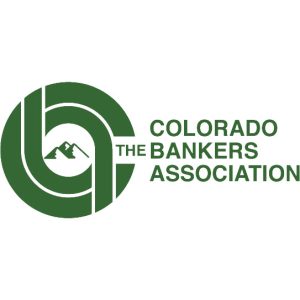In an opinion that is of profound importance to all litigators and clients, the Colorado Court of Appeals recently held that many, if not most, statutes of limitations are not extended if the limitations period ends on a weekend or court holiday.
In Gomez v. Walker, the Court of Appeals was faced with the question of whether section 2-4-108(2), C.R.S., extends the statute of limitations found at section 13-80-101, C.R.S. to the “next business day when the limitations period ends on a Saturday, Sunday or legal holiday.”
In a lengthy opinion focused largely on the text of the two statutes, the Gomez court answered that issue in the negative. The top line takeaway from the Gomez opinion is that any statute of limitations in Colorado that contains the phrase “and not thereafter” is no longer extended if the limitations period expires on a Saturday, Sunday, or legal holiday.
The ramifications of this ruling cannot be understated given how many types of cases are subject to statutes of limitations that contain the phrase “and not thereafter.” Although the list of these statutes is quite lengthy, many types of claims are of particular importance for financial institutions and professionals. After Gomez, all contract claims, claims for breach of the Uniform Consumer Credit Code and most claims alleging fraud, misrepresentation, concealment or deceit do not have their statute of limitations extended, even if the last day to file would be a weekend or legal holiday. As a practical matter, many of these types of claims would traditionally be brought against financial institutions and professionals, so this outcome is potentially beneficial to them. Financial institutions and professionals and their counsel should closely scrutinize all claims brought against them in light of the holding in Gomez.
However, Gomez could also have ramifications for financial institutions who may need to bring a claim against someone. Actions for the recovery of most debts are also now subject to a statute of limitations that is not extended if the limitations period falls on a weekend or legal holiday. Given that lenders will frequently try to negotiate loan workouts with their borrowers, lenders will want to be cognizant of when their statute of limitations runs out or obtain a tolling agreement from the borrower as part of the workout process. It should be noted that Gomez is a Court of Appeals decision, meaning that the Colorado Supreme Court could still reverse the decision. It is not a foregone conclusion, however, that the Supreme Court will take the case, and even if it does, it will be at least a year until the Colorado Supreme Court rules. As such, financial institutions and professionals should treat Gomez as black letter law in Colorado unless and until it is reversed.
How the Court of Appeals reached its conclusion is largely a matter of statutory construction. Although the particular facts of the case are not particularly consequential to its outcome, Gomez is a personal injury case involving an auto accident that occurred on June 15, 2016. The parties agreed that three years from the date of the accident was June 15, 2019, a Saturday. Gomez waited until the following Monday, June 17, 2019, to file her complaint. The defense moved to dismiss on the basis of the statute of limitations and Gomez argued that section 2-4-108(2), C.R.S., extended her statute of limitations to June 17. The district court initially denied the motion but later granted the defense’s “renewed motion to dismiss” after the Court of Appeals released its opinion in Morin v. ISS Facility Services, Inc. The district court found the Morin decision obligated it to dismiss the complaint as untimely.
On appeal, although the Court of Appeals disagreed that Morin was on point, it ultimately affirmed the conclusion that Gomez’s complaint was filed too late based on the Court of Appeals’ reading of the two statutes at issue. The statute of limitations that was in dispute in Gomez (section 13-80-101, C.R.S.) states that certain actions, including personal injury actions “arising out of the use or operation of a motor vehicle,” “shall be commenced within three years after the cause of action accrues, and not thereafter.” Gomez contended that section 2-4-108(2) applied to extend her statute of limitations to June 17 because it states: “If the last day of any period is a Saturday, Sunday or legal holiday, the period is extended to include the next day which is not a Saturday, Sunday or legal holiday.”
While the Gomez court noted that it is “tempting to give effect to both statutes by simply applying the language of section 2-4-108(2) to extend Gomez’s three-year limitations period — which ended on a Saturday — to the next date that was not a Saturday, Sunday, or legal holiday,” it resisted that temptation. The Court of Appeals found that “plain meaning” of the phrase “and not thereafter” in section 13-80-101 “is that the action cannot be filed after the three-year anniversary of the date the cause of action accrued.” In addition, the Gomez panel found that to read section 2-4-108(2) to extend this statute of limitations would either make the phrase “and not thereafter” redundant or read it out of section 13-80-101 completely. So, the Court of Appeals found that the statutes could not be harmonized and, because section 13-80-101 is more specific and enacted later, section 13-80-101 controls.
In sum, lawyers and their clients now cannot wait until the next business day if their limitations period ends on a weekend or legal holiday. Instead, they must now either file on the weekend or holiday or file their case before the weekend or holiday. Otherwise, they risk having their case dismissed as untimely.
Jacob Hollars, a partner in the Spencer Fane Denver office, is a litigator specializing in employment issues, real estate, special district and commercial matters. He can be reached at (303) 839-3707 and jhollars@spencerfane.com.







